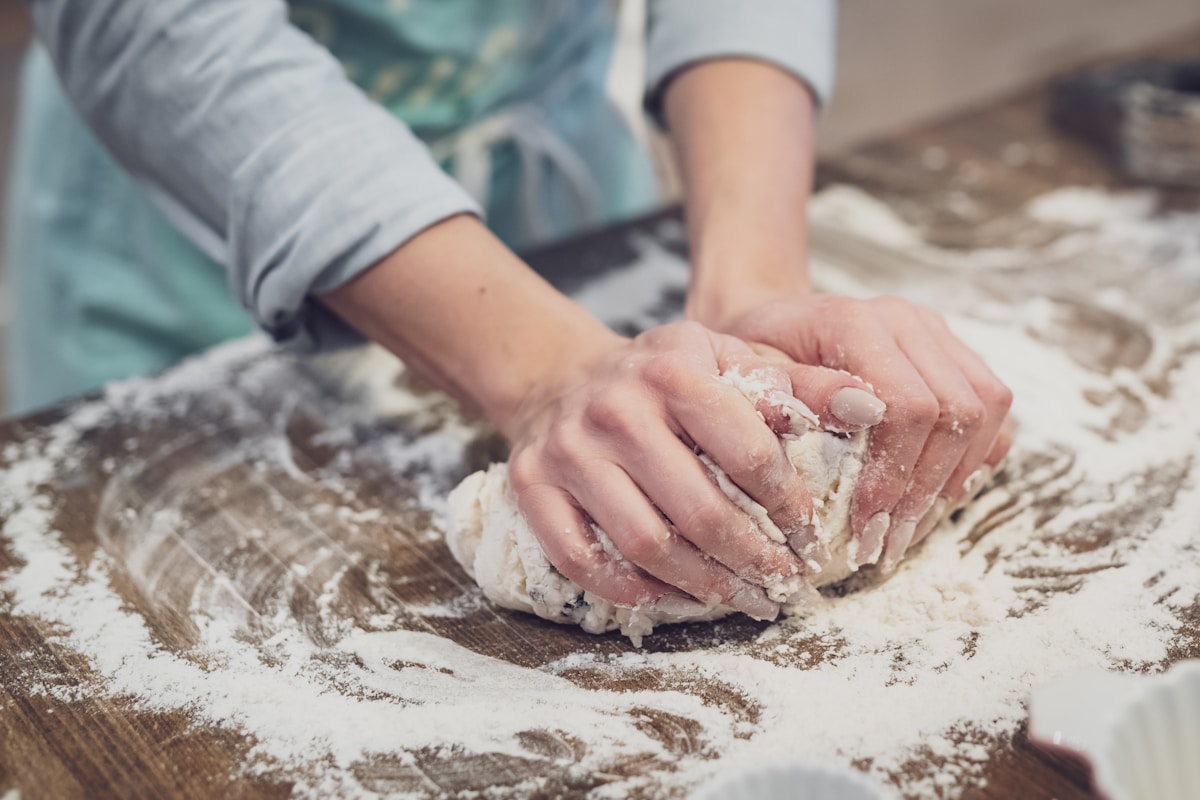Challah is the traditional bread baked for the Sabbath.
It has become popular with everyone, everywhere. It's attractive and has a firm, egg-rich texture that works for dinner, sandwiches, or French toast. It is typically braided with three, four, or six strands of dough. (The braided strands are symbolic of love.)

Challah is really very easy to make, especially from a mix.
There is a sense of satisfaction in working the dough by hand and crafting such a good looking bread and it certainly will impress guests.
For this bread, we use a bread mix though you can braid nearly any bread—including your favorite recipe. We chose this mix because we wanted to make a very large loaf and the potato flour in the mix would retard staling. (You can choose to make two smaller loaves from this same mix.)
Here is the recipe and the instructions using this mix:
Two cups of water. For the firmer dough needed, reduce the water amount. To make the dough egg-rich, crack two large eggs into a measuring cup and add warm water--enough to total 1 2/3 cups. Whisk the mixture together with a fork then heat it in the microwave until warm (110 degrees).
Mix the bread according to package instructions using only one packet of yeast (not two as per the mix instructions) and the egg and water mixture in place of the two cups of water. You may substitute 1/4 cup oil for the butter if you desire. You should have a slightly firmer dough.
Place the bread dough in a greased bowl, cover, and let rise until doubled—about 1 1/2 hours.
Prepare a large baking sheet by greasing and sprinkling with cornmeal. Use a lighter colored sheet to help keep the bottom from burning.
Once raised, use a knife to divide the dough into three equal pieces (or four if you choose to make a four-braid bread). Roll the pieces under the palms of your hands into three long ropes. You may need to let each rest for five to ten minutes to allow the dough to relax to get the proper shape. Using this mix, we had three ropes nearly 24-inches long. If you want the loaf to be larger in the center and less rectangular shaped, make the ropes thicker in the middle and tapered toward the ends.
Braid the three ropes in a common three strand braid just as if you were braiding pigtails. (Some people find it easier to create a symmetrical shape if they start braiding from the center.) When you get to the ends, wet them, pinch them together, and tuck them under. You should have a neat, symmetrical loaf when you are through. You can shape the loaf somewhat with your hands. If you don't like how the loaf looks, simply pull the braids apart and start again.
Place the finished loaf on the prepared sheet. (The formed loaf will be about 12-inches long but after rising and baking, you will have a finished loaf of about 24-inches so be sure to allow room on your sheet for expansion.) Cover the loaf and let rise until doubled, about one hour.
Preheat the oven to 350 degrees.
Prepare a glaze by whisking one egg with one-half tablespoon of water. Just before baking and when the loaf has fully doubled, remove the plastic wrap and gently brush glaze over the entire surface of the loaf. Sprinkle the top with poppy seeds or sesame seeds as desired. (Tip the loaf so that you can sprinkle seeds on the sides as well.)
Bake the bread for 20 minutes then cover the bread with a large sheet of aluminum foil to protect the top. Continue baking for another 20 to 30 minutes or until the bread crust is a deep golden brown. The interior of the loaf should register 190 degrees with an insta-read thermometer.
Use an egg turner to loosen the bread from the pan and transfer the loaf to a wire rack to cool.
Note: If you choose to bake smaller loaves, reduce the baking time by five to ten minutes.